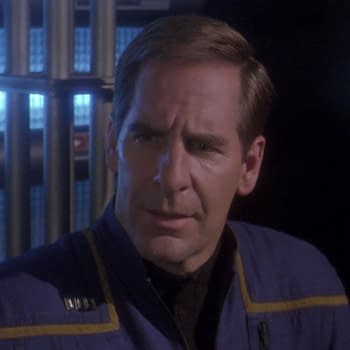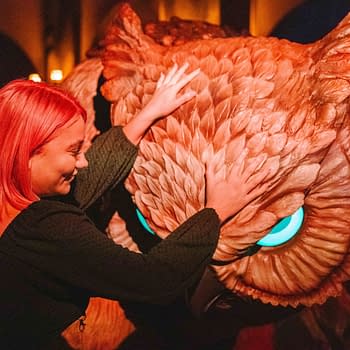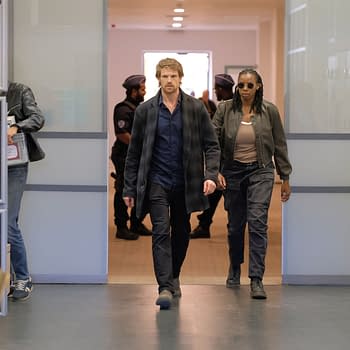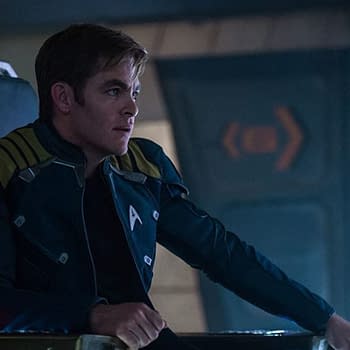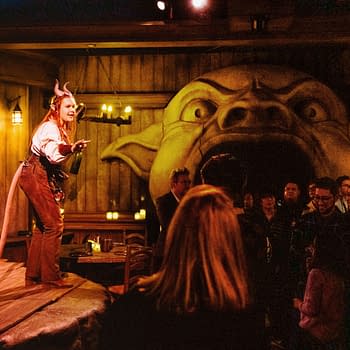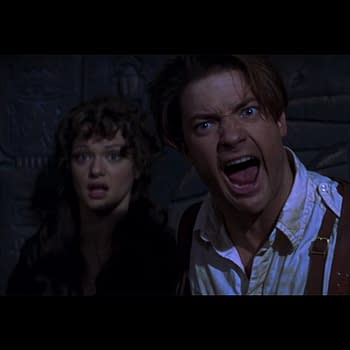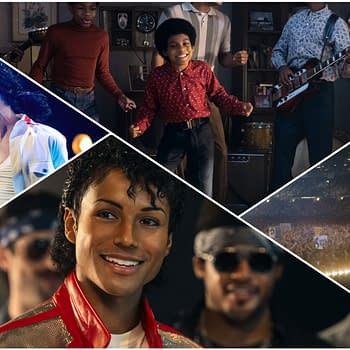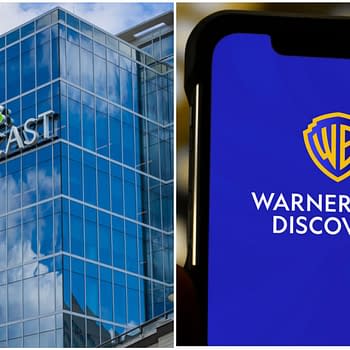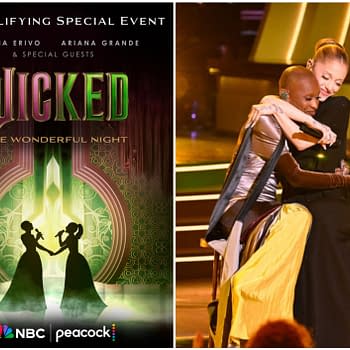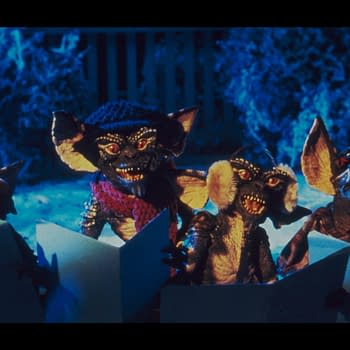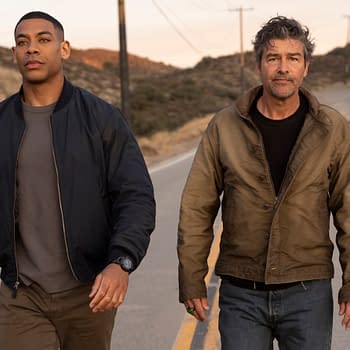Posted in: Documentary, Exclusive, Horror, Interview, Movies | Tagged: Christopher Griffiths, Cinedigm, Cineverse, Gary Smart, Hollywood Dreams & Nightmares: The Robert Englund Story, interview, Robert Englund
Hollywood Dreams & Nightmares Directors on Robert Englund's Legacy
Directors Gary Smart & Christopher Griffiths on their doc Hollywood Dreams & Nightmares: The Robert Englund Story beyond Freddy Krueger.
Directors Gary Smart and Christopher Griffiths don't hide their love of 1980s pop culture through their work with their documentaries on the original Fright Night (1985) and Robocop (1987). Their latest project covers Robert Englund's life, most synonymous with the A Nightmare on Elm Street franchise. The title of their documentary Hollywood Dreams & Nightmares: The Robert Englund Story reflects not only that legacy but to make the project happen, it had to go above and beyond to meet the subject's expectations. The two spoke to Bleeding Cool about convincing the actor to agree to the project, not only exploring his obvious legacy as Freddy Kreuger, like the sci-fi cult classic TV series V but exploring his life before Nightmare and building on his career since.
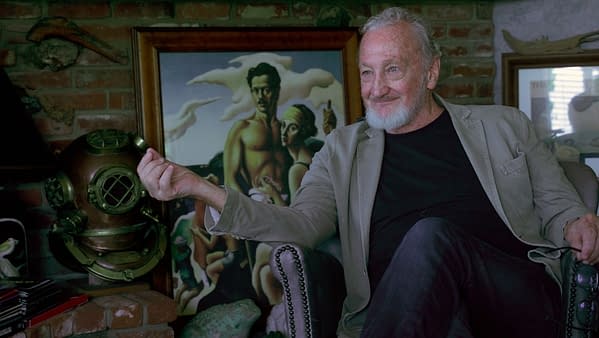
What inspired you guys to tell Robert's story for 'Hollywood Dreams & Nightmares?'
Smart: I've always been a fan of Robert since I was young, a five or six-year-old having posters of Freddy Krueger on my bedroom wall watching the original 'A Nightmare on Elm Street.' Robert's always been there since a young age. He is a horror icon for us like [Lon] Chaney, [Boris] Karloff, Peter Cushing, and Christopher Lee. It points to a story about the last of the great icons. He came at a time after Christopher Lee and Peter Cushing that were ending their careers in horror. When Robert emerges in the early eighties, he's the last proper one. That's what it was for me.
Griffiths: Just to elaborate a bit to add my short statement, I'd say we can't believe no one had made a documentary on Robert Englund already [laughs]. It's like, "Well, we'll be the ones for the job," we hope.
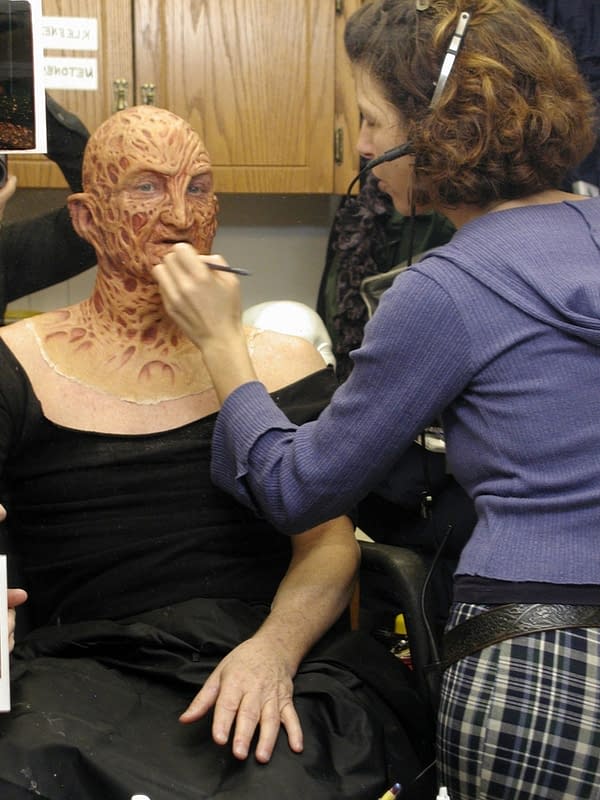
Was the plan always to tell Robert's story as opposed to his legacy as Freddy Kreuger?
Smart: From day one, it was about the whole story. We got Robert engaged from the start because it had to be about the whole story. There have been enough documentaries on 'A Nightmare on Elm Street' franchise, 'Never Sleep Again' is a fantastic seven-hour one. We loved that, and we were the people who made it. It was much about how Freddy is important, but what's around Freddy, the man behind the fedora and the glove? It's important to talk about placing Freddy at the dock at the start of the center and the end.
Griffiths: As Gary said, the mission was always to talk about Robert Englund, the actor, and his career. A few we know from popular culture with things like 'V' and the other notable roles he's undertaken. Hopefully, what is featured in the documentary is how much he worked in Hollywood before he became Freddy Krueger and, more importantly, all the paths he crossed. I've always been a big fan of 'Stay Hungry' as a big [Arnold] Schwarzenegger fan; when watching that as a kid, I was like, "Oh my God! It's the guy who plays Freddy Krueger as well! You've got Starman (Jeff Bridges), Terminator (Schwarzenegger), and Freddy Krueger in one film. That was an important thing, but as Gary said, going on the Freddy aspect, it's almost like it was art imitating life in a way in terms of how we had to utilize Freddy in this documentary.
Certainly, it's going to be a big part of the documentary. It's a notable part because that's how we all know how well we know Robert Englund is through Freddy. The challenge for us was utilizing that in the context of Robert's career. Rather than go over the same old ground, let's talk about how the film was made and all the special effects. One of the things we enjoyed the most was, let's talk about the 'A Nightmare on Elm Street' franchise in about a 15–20-minute window because it was such a big heavy period for him from about 1984 to 1991. You've got 1994 with 'New Nightmare,' which we separated, but let's talk about just how crazy that whole situation was.
This is why he became big, so I enjoyed tapping into the pop culture aspects of it by utilizing the TV shows he appeared on and the fact he was on cereal boxes, records, and games. You had featured that part of Freddy. We try and then bring you back down here and ask, "What does that mean for Robert's career now?" You know that the benefits, the pros, and the cons basically, ultimately add up in the pros, but there's going to be a lot of doubts in amongst that.
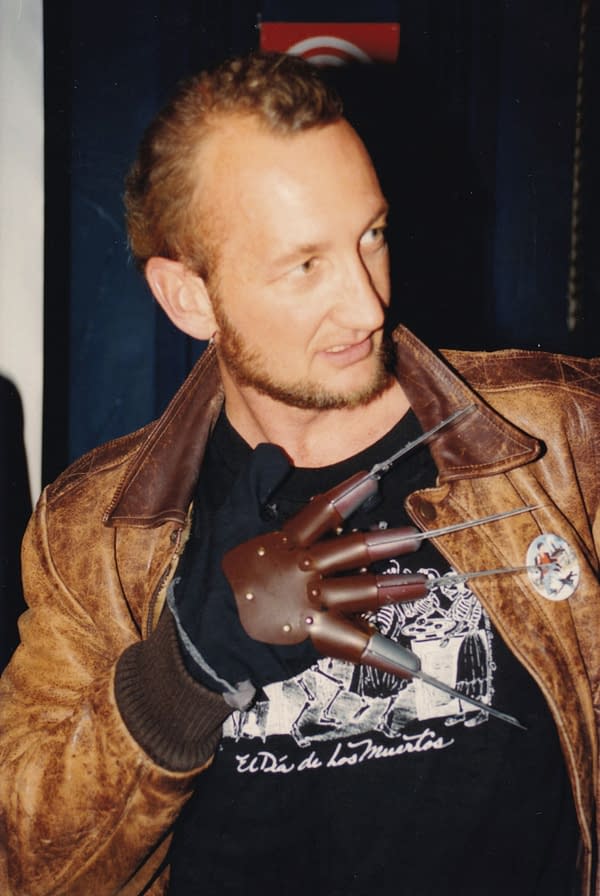
Did you two have total autonomy as far as the project? Did Robert also have creative input regarding the story he wanted to tell in this documentary?
Smart: At the start, it was Robert. All Robert wanted was to explore his other wider career. The first thing he said to us was, "I understand that Freddy is important. I get it. It's the selling point Freddy Krueger is, but there's more to it around that." We went ahead and tested the doc narratively based on the story around Robert, and then when we got to see it, it changed a little bit with Robert's input, and obviously, Chris will probably tell you how Robert became more involved in the process.
Griffith: We had an agenda to cover Robert's whole career. Unlike our previous projects, one of the most interesting things we got out of this project was talking about individual films and individual roles within the movie. This is our first time working with a central character, and I've enjoyed building a relationship with that central character. To the point of the interview, one might have given us the facts. Interview two might have expanded upon it. Interview three got into talking about more personal information. When we screened the documentary in its original incarnation last year, Robert was in attendance. He was happy with it, and we were with the positive response, but some things were tucking at my brain, like the second half could be a bit better. Robert had some suggestions himself, which was about the fact that he worked with Henry Fonda as someone who loves films; I can't believe he didn't mention that because he name-drops everyone else like Christopher Lee.
I asked, "You didn't want to mention he works with Henry Fonda?" We were lucky enough to have the camera on us, such as over Scotch tape and chewing gum affair. We'll use the phone, and there's a live mic; I hope for the best and get him to talk about working on things like 'Halloween,' which was huge. It's known trivia online that he was helping put the leaves out, but let's go in there! That will sell this documentary and be very facetious, but no, what was nice for me was being able to address things like, "Let's be honest for a moment." The nineties weren't the greatest of periods for slasher icons because there were so many hits and misses, primarily in the early part of the decade.
'Scream' came out and took over the slasher genre, basically setting a precedent for what came afterward. What was nice was getting him to open up a bit that was from our end. We wanted that because as Gary's mentioned, there's not much drama about Robert Englund's life and we don't want to create drama that's not there. At the same time, if you had to look at this whole thing holistically, you can see where it's like, "That must've been a bit of a tough period." The whole point of the documentary, in a way, is it is cathartic for Robert to showcase his emotions of being such an iconic character. It takes over your life, but then you embrace it and tackle it head-on. I enjoyed that, and he had his way with some parts.
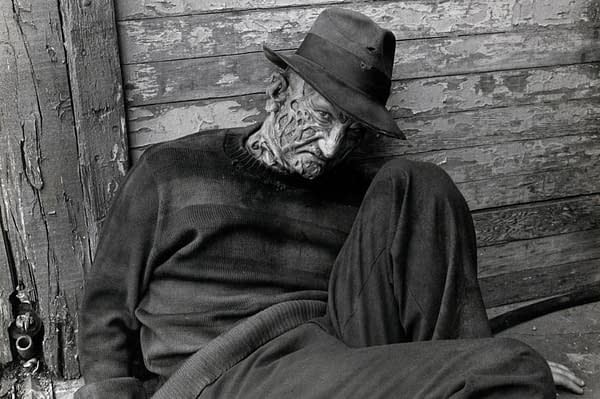
I have a two-part question here. Were there any subjects that you wanted to get for the documentary that you couldn't? If there was any, any one of those that's passed on that you would have loved to have talked to? Who would you have liked to have gotten?
Griffiths: In terms of stories that we wanted and couldn't get into, we always, as filmmakers, you want a little bit of a bite that you're in your story. You want some kind of emotional kind of light element. It was important to get back, and it was hard for Robert initially to get that personal element. He touched upon his first wife right to the memorial of his dad and his mom and his relationship with Nancy, his wife. That took time to get that, and it was much more focused on the films. I would have loved to have interviewed his parents. There were many film people out there, but it would be nice to get some from Robert's family because he doesn't have a huge family. It's only Robert and Nancy; it's difficult to get the personal element other than from his wife. If [his parents] would have been around, that would be brilliant because it would have given that kind of history a little bit about their thoughts on his career.
Smart: We didn't want to create drama that wasn't there. To get those extra little bits, about 15 minutes worth of extra content off Robert. After the initial screening, I was like, "Thank God," because there were things that played on my mind: We didn't talk about them, or we didn't mention them. In terms of the figures who I would have liked to have had this past, Tobe Hooper and Wes Craven, because they're so prominent. It's alluded to in the documentary's 'New Nightmare' section through Heather Langenkamp. Both she and Wes were looking at Robert like, "Jesus! Look how huge you've become!" Yet, that was Wes's brainchild, and Heather's the protagonist of 'A Nightmare on Elm Street.' Where are their cardboard cutouts? It would have been nice to have heard that, especially got a nice, updated perspective from Wes about Robert solely and Tobe Hooper as well because he's worked on 'Eaten Alive,' 'Night Terrors,' and 'The Mangler.' As a big fan of 'The Texas Chainsaw Massacre' as well, getting Tobe would have been like, "Yes! Sign this for me."
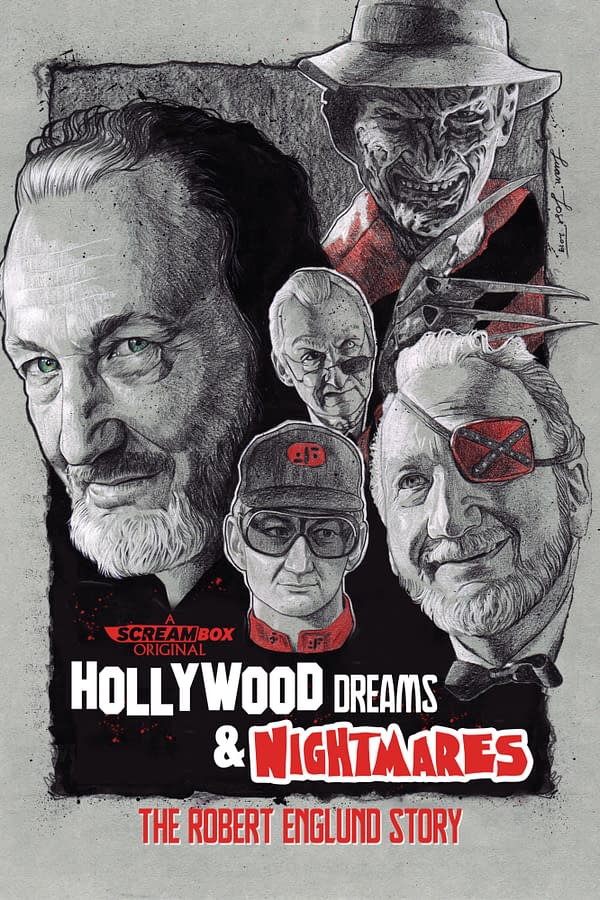
Given what Robert built on Freddy's legacy, could another step into his shoes with how the 2010 remake with Jackie Earle Haley did?
Smart: You've got the dreamscape where you got so many opportunities to develop the 'Nightmare' franchise, right? It'd be great as a Netflix series in a ten-parter exploring people. Part of me feels Robert could still do it. While Robert's still on this planet, thank God, there's no reason why he still can't do it. He's an older man now, but Freddy doesn't have to be chasing people around. There could be an element of Freddy doing that.
The most effective kind of right comparison now is probably 'Stranger Things'; that man isn't doing anything. He stands there. Freddy could be similar to [Englund's character Victor Creel] in that if he could be a real dark entity, which is the Robert version and then the surreal version or the CGI or animatronic version of different elements of Freddy and people's perception of him is to them. I don't think he's dead, but it will rear its head again because Blumhouse is interested. That's going to happen, and hopefully, Robert will be involved somewhat, like Tony [Todd] was in the new 'Candyman,' a bit more than that maybe for Robert. I don't think it's dead. It's there. In the 2010 remake, they tried to imitate the first film too much. You might as well put Robert in it. You might have had Robert. It would have worked better like [the Duffer Brothers] did with the Upside Down and took elements from 'Stranger Things.'
Hollywood Dreams & Nightmares: The Robert Englund Story is available on Screambox and digital.






